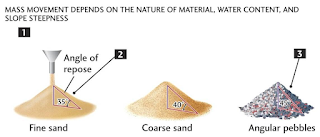RESEARCH METHOD VERSUS RESEARCH METHODOLOGY
•
Research methods may be understood as all those methods/techniques that are used for
conduction of research.
•
Research methods or techniques*, thus, refer to the methods the researchers use in performing
research operations.
•
In other words, all those methods which are used
by the researcher during the course of studying his research problem are termed
as research methods.
•
Since the object of research, particularly the
applied research, it to arrive at a solution for a given problem, the available
data and the unknown aspects of the problem have to be related to each other to
make a solution possible.
•
*At times, a distinction is also made between
research techniques and research methods.
•
Research techniques refer to the behaviour and instruments we use in performing research
operations such as making observations, recording data, techniques of
processing data and the like.
•
Research methods refer to the behaviour and instruments used in selecting and
constructing research technique.
Research methods can be put into the following
three groups:
•
In the first group we include those methods which
are concerned with the collection of data. These methods will be used where the
data already available are not sufficient to arrive at the required solution
•
The second group consists of those statistical
techniques which are used for establishing relationships between the data and
the unknowns.
•
The third group consists of those methods which
are used to evaluate the accuracy of the results obtained.
•
Research methods falling in the above stated last
two groups are generally taken as the analytical tools of research.
WHILE
•
Research methodology is a way to systematically solve the research problem and may be
understood as a science of studying how research is done scientifically.
•
It is study of various steps adopted by a
researcher in his research problem along with logic behind them.
•
It is necessary for the researcher to know not
only the research methods/techniques but also the methodology.
•
Researchers not only need to know how to develop
certain indices or tests, how to calculate the mean, the mode, the median or
the standard deviation or chi-square, how to apply particular research
techniques, but they also need to know which of these methods or techniques,
are relevant and which are not, and what would they mean and indicate and why.
•
Researchers also need to understand the
assumptions underlying various techniques and the criteria by which they can
decide that certain techniques and procedures will be applicable to certain
problems and others will not.
•
All this means that it is necessary for the
researcher to design his methodology for his problem as the same may differ
from problem to problem.
•
For example, an architect, who designs a
building, has to consciously evaluate the basis of his decisions, i.e., he has
to evaluate why and on what basis he selects particular size, number and
location of doors, windows and ventilators, uses particular materials and not
others and the like.
•
Similarly, in research the scientist has to
expose the research decisions to evaluation before they are implemented.
•
He has to specify very clearly and precisely what
decisions he selects and why he selects them so that they can be evaluated by
others also.
•
From what has been stated above, we can say that
research methodology has many dimensions and research methods do constitute a
part of the research methodology.
•
The scope of research methodology is wider than
that of research methods.
•
Thus, when we talk of research methodology we not
only talk of the research methods but also consider the logic behind the
methods we use in the context of our research study and explain why we are
using a particular method or technique and why we are not using others so that
research results are capable of being evaluated either by the researcher
himself or by others.
• Why a research study has been undertaken, how the research problem has
been defined, in what way and why the hypothesis has been formulated, what data
have been collected and what particular method has been adopted, why particular
technique of analysing data has been used and a host of similar other questions
are usually answered when we talk of research methodology concerning a research
problem or study



Comments
Post a Comment